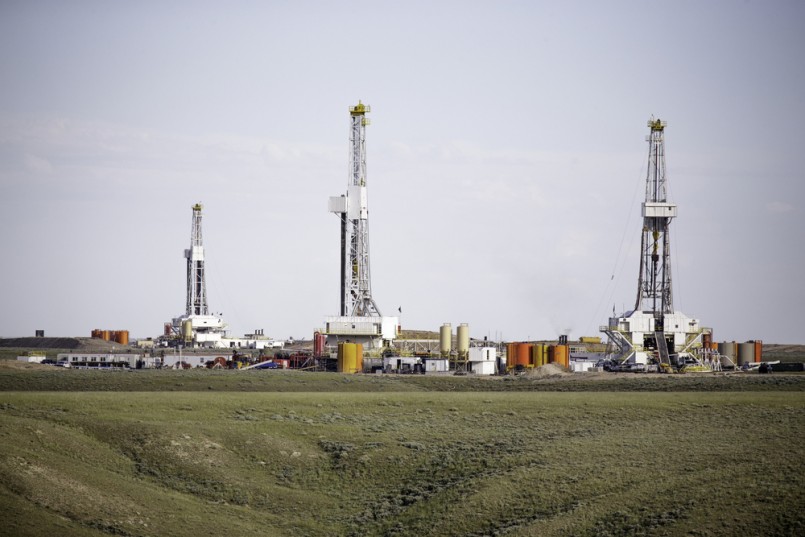Environment
What are the health dangers of fracking?

Image: Shutterstock/Jens Lambert
The third study on the associations between fracking and health has been released from Johns Hopkins Bloomberg School of Public Health in Environmental Health Perspectives this August 2016. The study reveals that health symptoms most often associated with heightened exposure to active fracking wells (like migraines, fatigue and nasal/sinus problems) are more prevalent in participants living in close proximity to the wells than those residing elsewhere.
How was the study conducted?
The study surveyed 24,000 patients of a Pennsylvanian clinic by self-administered questionnaire. The patients of Geisinger Health System, which provides health care services to forty Pennsylvanian counties with many near active wells, reported migraines at 23%, severe fatigue at 25% and chronic rhinosinusitis at 24%.
Publicly available data was then used to estimate their exposure to active fracking wells, taking into account the size and number of existing wells in addition to the distance between the wells and patients’ homes. “While no single health condition was associated with proximity to active wells, those who met criteria for two or more of the health conditions were nearly twice as likely to live closer to more or larger wells,” Johns Hopkins reported in a press statement.
Study authors share deepening concerns
Aaron W. Tustin, a study author and resident physician in Bloomberg School’s Department of Environmental Health Sciences states, “These three health conditions (migraines, fatigue and chronic rhinosinusitis) can have debilitating impacts on people’s lives. In addition, they cost the health care system a lot of money. Our data suggest these symptoms are associated with proximity to the fracking industry.”
Although the study only proves correlation and not causation, another senior author insists further study into the health impacts of fracking is very much warranted. Brian S. Schwartz, Bloomberg School of Public Health’s environmental epidemiologist and physician, insists, “There have now been seven or eight studies with different designs and in different populations, and while none is perfect, there is now a growing body of evidence that this industry is associated with impacts on health that are biologically plausible. Do we know the exact mechanism? No. That requires further study.”
Earlier studies revealed additional concerns
Earlier studies from Johns Hopkins found associations between close proximity to fracking sites and premature births/high-risk pregnancies as well as asthma. Another study released in August 2016 found proximity to fracking associated with fertility problems in mice. Additionally, concerns have risen over a 2014 StateImpact report on Pennsylvania, which revealed Department of Health workers were instructed to ignore fracking-related health complaints. Substantiating documents obtained by Food and Water Watch in 2015 showed the Pennsylvanian Department of Health “inundated with fracking-related health concerns ranging from shortness of breath and skin problems to asthma, nose and throat irritation, which were ignored or pushed aside.” According to StateImpact, “DOH health workers were instructed to identify key fracking “buzzwords,” and told not to respond to fracking-related health complaints, Food & Water Watch requested and eventually received the DOH natural gas drilling log of health complaints. The logs demonstrate that state residents are regularly reporting alarming health concerns, and that state agencies have failed to adequately respond and address these health problems from drilling and fracking.”
While there are numerous concerns arising in spite of industry arguments to the contrary, the fact remains that further study is needed if we are to hold public health as our priority. Let’s hope these studies are conducted sooner rather than later, and assure the results are shared widely and swiftly with the public.





0 comments